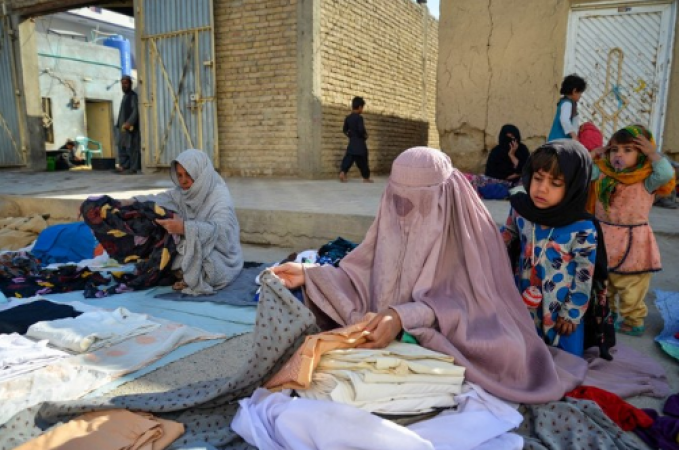
New York: The UN Security Council on Thursday adopted a draft resolution requesting that a team of impartial experts evaluate the international strategy on Afghanistan and come up with a "consistent approach" to deal with the problems the country is currently facing. came up with the approach and adopt an integrated approach
Two signatories to Resolution 2679, the United Arab Emirates and Japan, wrote the Security Council's Afghan file. The mandate of the United Nations Assistance Mission in Afghanistan was also extended by the two countries for one more year till March 17, 2024. Both the motions were approved unanimously.
Following the vote, Lana Nusseibeh, the UAE's Permanent Representative to the United Nations, told Arab News that "there is a remarkable set of circumstances in Afghanistan right now, and we need a remarkable response from the Council. So I hope this resolution will help.
Also Read: India Players comfortable with workload management calls, says Hardik Pandya
The Kalamdharis have argued that a sound international political strategy is needed and that maintaining the status quo will not lead to positive development on the ground.
Penholders are in charge of monitoring the humanitarian situation in Afghanistan by formulating proposals, requesting emergency meetings, and organizing mission visits.
The resolution stresses the importance of ensuring the full, equal and meaningful participation of women, as well as the protection of all human rights, in particular the rights of women, children, minorities and vulnerable people.
It also expresses concern over the failure of the Taliban to live up to the expectations of the Security Council.
Also Read: US Senate names Indian-American as Asst Secretary of Air Force
The text requests that the Secretary-General consult "all relevant Afghan political actors and relevant authorities, Afghan women and civil society as well as the region and the wider international community" before the Council submits an independent assessment. November 17 this year.
To address the current challenges facing Afghanistan, including challenges relating to human rights, women and girls' rights, religious and ethnic minorities, economic and social challenges, dialogue, governance and rule of law, and the goal of a secure, stable To further a more democratic Afghanistan.
The assessment should include recommendations for an "integrated and coherent approach" among relevant political, humanitarian and development actors inside and outside the United Nations system.
By requesting this assessment, Nusseibeh told other council members after the vote, the Security Council is "demonstrating not only its deep concern with the dangerous trajectory in Afghanistan, but it is also choosing to do something about it." " Is."
"The status quo that contributed to the worst crisis of women's rights in world history is likely to remain in place," she continued, calling for a sustained and coordinated international effort.
“If we all share the goal of building a secure, stable, prosperous and inclusive Afghanistan – and we believe we have demonstrated today – then we must all work collaboratively towards the same goal.
The scale of the crisis necessitated a change from routine operations, according to Nusseibeh, who also said that "the work really starts now."
The UN Security Council's support for the UN Assistance Mission "comes at a time of enormous challenges facing Afghanistan and its people, including the dire humanitarian and economic situation, the persistent threat of terrorism, and above all, the undermining of opportunities for women and girls" .
in education and employment," said Ishikane Kimihiro, Japan's Permanent Representative to the United Nations.
The unanimous extension of UNAMA's mandate by the Council, according to Nusseibeh, underscores its "strong and unifying message: Afghanistan, and especially its women and girls, will not be abandoned."
Taliban fighters captured the country's capital Kabul on August 15, 2021, following the withdrawal of US and NATO forces from Afghanistan after 20 years of war.
Since then, he has implemented several decrees that prevent women and girls from continuing education beyond the sixth grade and working for humanitarian organizations, among other rights violations. Several international efforts to persuade the Taliban to lift their sanctions have failed.
Also Read: Jokowi desires a ban on Visa and Mastercard for local governments.
UN Deputy Secretary-General Amina Mohammad led an effort earlier this year and said, "It is critical to maximize whatever leverage is available to guide the Taliban toward universal principles that encourage participation in the international community." " Underlines." Interview with Arab News following his trip to Afghanistan.
Mohammad urged all countries to "work together to pressure the Taliban to modernize and step into the twenty-first century".